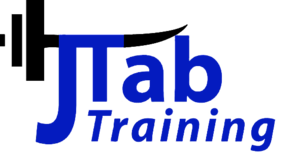Before I begin this blog, I would like to introduce myself. I am Catherine Schultz, a Junior Exercise Science student with a minor in Psychology and Nutrition. I am interning with Joey this summer to complete my second internship required by my college, Endicott College in Beverly, Massachusetts. I am passionate about helping athletes reach their potential whether its in the weight room, nutritionally, or mentally. I have struggled with staying injury-free the past year and a half which is why I care so much about this topic. Eating quality food is what has helped me grow as an athlete on the track/course and in the weight room. I am now able to lift more than I could have imagined (also shoutout to Joey for the guidance) and feel stronger hitting my times on the course. With that being said, I hope that this blog answers some questions you may have and offers guidance to those who need it from someone who has struggled too!
Now, let’s dive into the real topic of this blog: food. I am sure many of you reading this question how, what, and when to eat. Don’t worry I have the same question too, but hopefully I can provide some incite on how I tackle these questions.
As a female college athlete, I have to make sure I fuel properly not only to achieve my potential athletically, but also to succeed in the classroom. If I am not fueling enough to exercise, I will never be able to do well in school. This is why staying on top of eating enough carbohydrates, protein, and fat is critical. Carbohydrates, fats, and proteins are the three key macronutrients and are essential to our body’s functioning. Without them, health issues could occur, too much of them and health issues could occur too. Finding a perfect balance for YOU is going to be a game changer, literally and figuratively.
Let’s break it down further and give you a run down of how a day could go. I typically have classes in the morning to mid-afternoon. Starting off the day right with a bowl of oatmeal and some fruit like an apple or orange are my go-to. The oatmeal offers carbohydrates, more specifically with a low glycemic index to give me energy (carbohydrates are your main source of energy and low glycemic foods are able to be digested slower and cause a slow progression of sugar into the blood stream), adding a scoop of protein power or some nuts cover your protein needs (this helps with muscle growth, cell growth, hormones, and basically keep your body functioning), and finally adding some honey for fat (also helps with cell function and energy). In between my classes I try to add in a protein bar or a banana for a quick source of protein or carbohydrates. After my classes I eat a pretty big lunch before I do homework and then practice around 5. Making sure I properly fuel for practice is very important so I can run the times I want to. I try to eat a salad with some chicken and almonds for protein, quinoa for carbohydrates, and some vegetables too. I will also add in a small sandwich with meat, cheese, lettuce, and tomato to cover the remaining needs. Right before practice typically 30 minutes before, I will either eat a high glycemic index carbohydrates (these cause a rapid rise in blood sugar and are digested rapidly) to provide a quick energy boost such as a fruit snack or a banana, but if I feel like I will not digest it in time, I will take a few sips of a Gatorade. After practice is the most important time to fuel! Helping your body’s muscles synthesize or in more simple terms heal and grow stronger is protein’s main job. A key point to understand though is to eat carbohydrates before you eat protein or your protein that you just consumed will be utilized as restoring energy. Carbohydrates are prioritized over any other macronutrient. On top of that, it is recommended that you consume about 20-30 grams of protein per meal to make sure you can achieve your nutritional needs. To achieve this, I may eat some salmon for my protein needs, rice or quinoa for my carbohydrate needs, and peanut butter for my fat needs. Finally, a tip to adding remaining protein may be eating a smoothie bowl or protein shake before bed.
To wrap this up, I would like to point out a few key takeaways. First, eating is personalized, no one person is going to be the same. With that in mind, you may think that you are eating too much, but trust me, you probably need to eat more than you think you do. Second, timing is important! Eating carbohydrates before you eat protein. Eating high glycemic index carbohydrates before you work out and low glycemic index foods at night and morning to help with your body’s processing of energy. Lastly, make it fun. If you eat the same food all day every day, it may be difficult to stay disciplined to eat the amount of carbohydrates, protein, and fat you need. Cancel
Thank you for taking the time to read this! I hope you enjoyed it as much as I enjoyed writing this blog
if you have any comments or concerns feel free to contact me at:
Cschultz@mail.endicott.edu or (401) 644-2859
